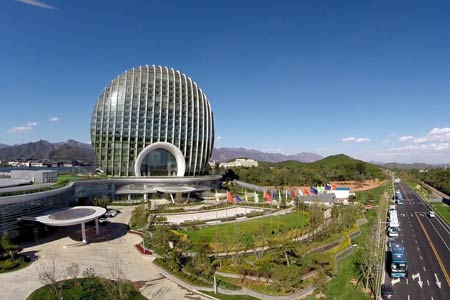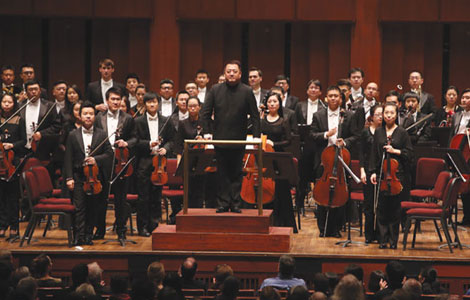IPR courts given speedy go-ahead in three regions
Updated: 2014-11-04 07:51
By Cao Yin(China Daily)
|
||||||||
China's top court has accelerated the process of setting up intellectual property rights courts to handle disputes in Beijing, Shanghai and Guangdong province before the end of the year.
The Supreme People's Court has carried out extensive research and held discussions with many legal experts on the issue.
In August, the top legislature selected Beijing, Shanghai and Guangdong as the first places to establish the IPR courts.
The court in Beijing will start to operate before Nov 10, Wang Chuang, deputy chief judge of the intellectual property tribunal under the SPC, said on Monday.
The capital's intellectual property court in Haidian district, home to many technology giants and colleges, appointed 25 judges last month, the Beijing Times reported.

The courts in Shanghai and Guangdong have also been taking shape, Wang said, adding that all three courts will file and hear cases before the end of the year.
Under a judicial interpretation issued by the SPC on Monday, the three new courts will handle civil and administrative disputes involving intellectual property, especially technical disputes.
The court in Guangdong will be based in Guangzhou, the provincial capital. Intermediate people's courts, which heard technical intellectual property rights cases previously, will no longer handle related disputes after the three new courts start work, Wang said.
The SPC is also considering recruiting technical assistants for the three courts to help identify technological facts and provide professional advice, Wang added.
Chen Jinchuan, chief judge of the intellectual property tribunal under Beijing High People's Court, said most judges without technical backgrounds have difficulty in handling some professional IPR disputes, such as those related to biology, medicine and chemistry.
Chen, who has been appointed deputy president of the IPR court in Beijing, said another judicial interpretation, covering the selection of these assistants and their duties, is being prepared in the hope of improving the efficiency of hearing such cases.
Zhang Sihan, a professor at the National Judges College, said it is practical to set up IPR courts in Beijing, Shanghai and Guangdong, "but it is not necessary to establish more in all provinces".
Guangdong courts handle about 25 percent of the nation's IPR civil cases every year and the average number of patent disputes in the province annually has reached 3,400, according to the top court.
More foreign companies have also been involved in IPR disputes in Beijing and Guangdong, which has added to pressure on the courts, the Supreme People's Court added.
Zhang said the new courts are acting as trailblazers and a decision on extending such courts to other areas will depend on whether these three "pioneers" operate well.
caoyin@chinadaily.com.cn

 Clean Yanqi Lake for APEC
Clean Yanqi Lake for APEC
 WTC reopens with six-floor China Center
WTC reopens with six-floor China Center
 John Kerry speaks about US-China relations
John Kerry speaks about US-China relations
 China orchestra plays in Washington
China orchestra plays in Washington
 Top 5 sectors that will ride on top of 'through train'
Top 5 sectors that will ride on top of 'through train'
 Forum Trends: Should students study abroad?
Forum Trends: Should students study abroad?
 Hong Kong films to take center stage
Hong Kong films to take center stage
 Healing through art at UN
Healing through art at UN
Most Viewed
Editor's Picks

|

|

|

|

|

|
Today's Top News
Alibaba Q2 revenue surges
Healing through art at UN
China orchestra plays in Washington
Asian American seeks RI governorship
Chinese envoy urges to enhance nuclear safety
US packer opens new plant in China
Mandarin in 6 months?Can it work?
New agency to strengthen graft fightus
US Weekly

|

|







